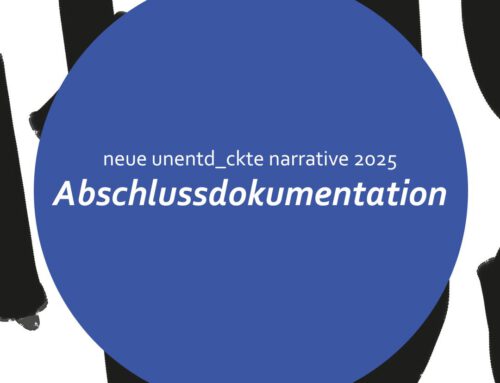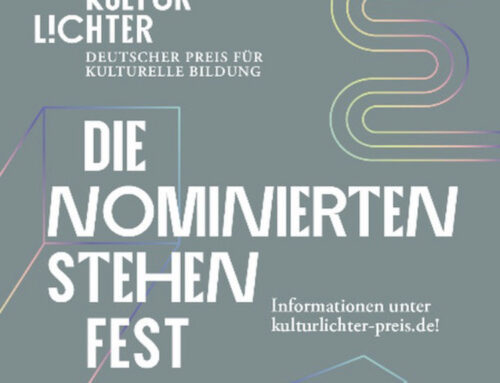We use focus groups for the further development of our model project. Focus groups are interviews with specifically selected participants. We use them, for example, to test the impact or accessibility of new cultural formats:
How is a theatre play about female contract workers received by people from the community?
How easily can people with disabilities take part within barrier-free formats?
Reaching different target groups is important for us. It’s not always easy to provide tailored offers for all people equally. We would like to work on this over the coming years – and use focus groups to better understand the needs, perspectives and realities of life of a wide range of people. This will enable us to adapt our actions and formats accordingly.
Survey on barrier-free web exhibition
Our first focus group took place in June 2021 with a small group of blind and visually impaired people. The interview was conducted in cooperation with inclusion expert Sandra Plessing. We spoke with the group about the accessible version of the now newly published web exhibition “Open Process”. In particular, we talked about transparency and clarity, which is essential for image captions, among other things, when screen readers are used. Other topics included typography, color and layout design that can facilitate access for people with visual impairments.
Feedback from the focus group has subsequently been incorporated into the completion and further development of the “Open Process” Digital Exhibition.
Why focus groups are important
Inside and outside our organization, we want to make various exclusion mechanisms visible and set an example against group-based misanthropy. In doing so, we are in a constant learning process. We do not always have the experience or the connection to a certain reality of life that would be necessary to sensitively present the perspectives of those affected. That is why we work together with partners who have the necessary skills. Focus groups are an important addition to this. The results of a focus group provide insights into group-specific perceptions (Schröter & Zwick 2012: 25). The group can act as a corrective in an ongoing production and provide important feedback. But the discussions can also be exploratory – bringing new narratives and surprising things to light (Schröter & Zwick 2012: 26) when the production is still in the making.
For us, the strength of focus groups lies in their exploratory nature on the one hand, and in targeted questions we can work with on the other. In order to get one step closer to our goal of diversity design and new narratives, we would like to conduct more focus groups and engage in conversation with different people.
Source: Schröter/Zwick (2012): “Konzeption und Durchführung von Fokusgruppen am Beispiel des BMBF-Projekts ‘Übergewicht und Adipositas bei Kindern, Jugendlichen und jungen Erwachsenen als systemisches Risiko’”, in Mack, Schulz, Renn: Fokusgruppen in der empirischen Sozialwissenschaft (pp. 24-48).




